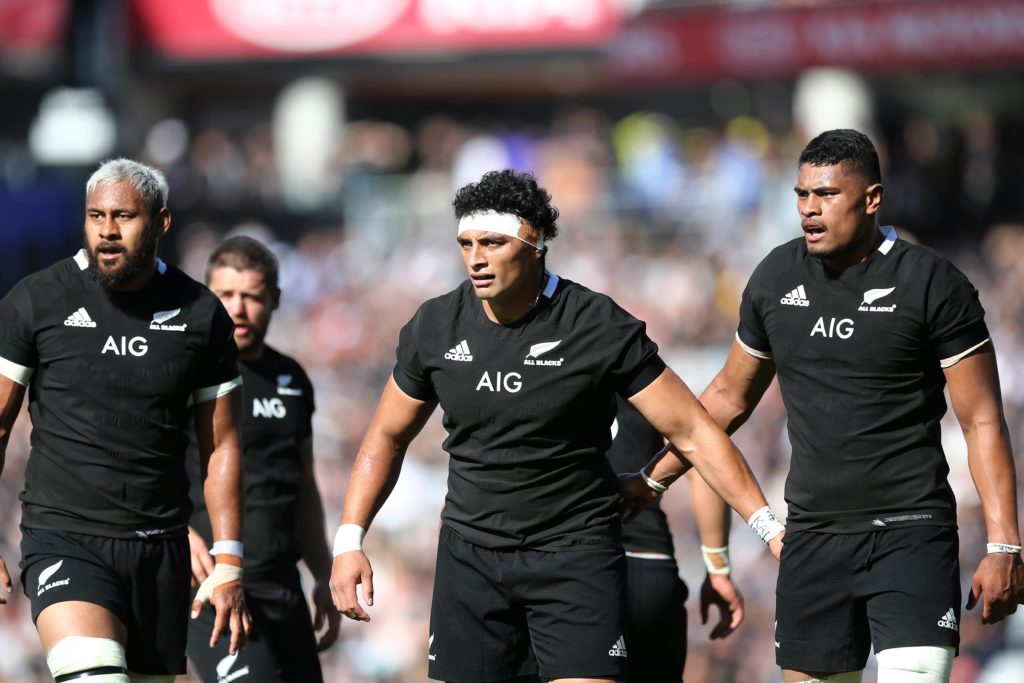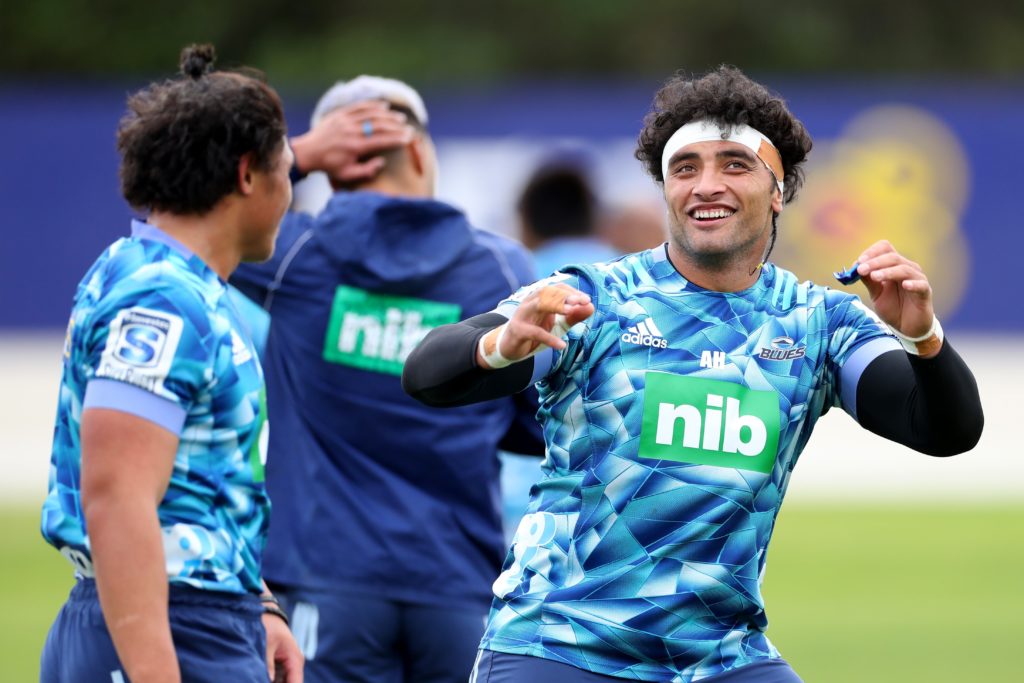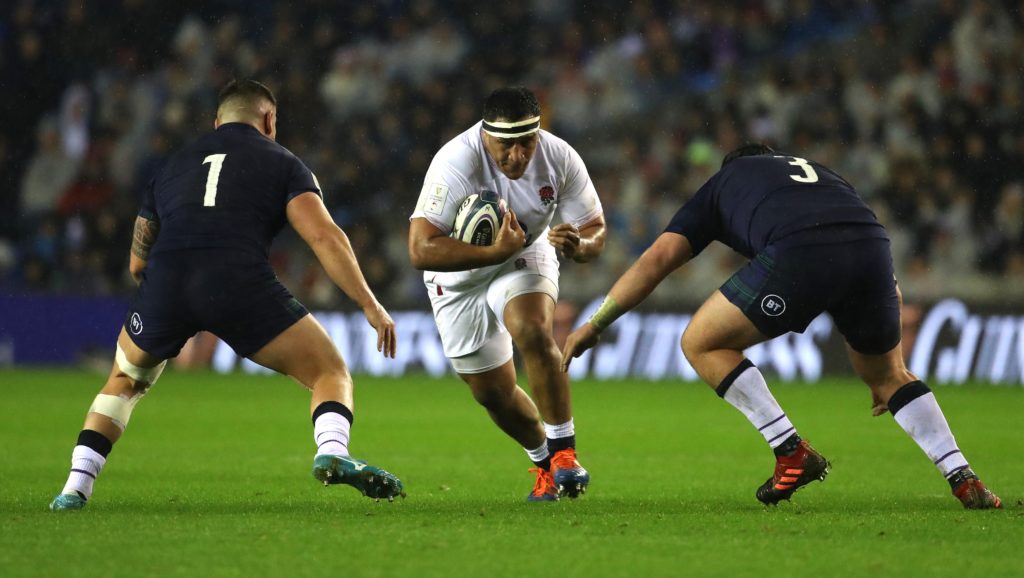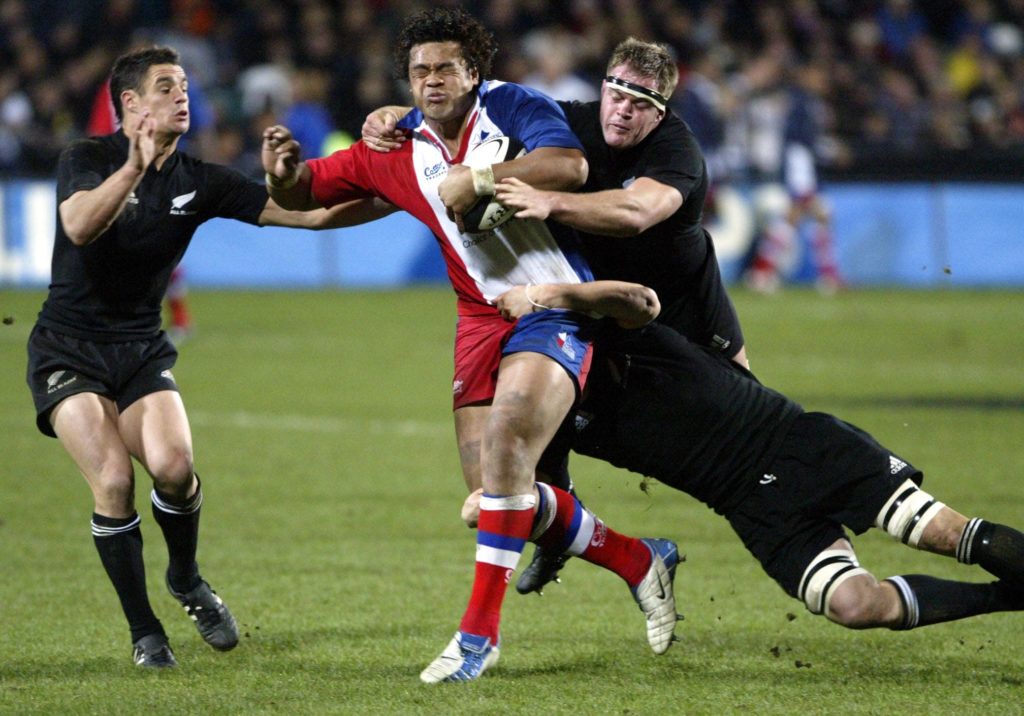There is a future where the respective national teams of Fiji, Samoa and Tonga are part of an expanded Rugby Championship. A future where all three island nations have access to their best players and can pay them a fair amount.
In this future world the All Blacks and Wallabies won’t have exclusive dibs on every young Pasifika player emerging through Super Rugby.
But fear is preventing the journey to this new world from beginning. Fear that if the Islands are better resourced and able to build a genuine career pathway between Super Rugby to their respective international sides, the world order might be changed.
The Celts, the Italians and the Pumas would be vulnerable to dropping down the world pecking order if Fiji, Samoa and Tonga can finally harness their full power.
And while the emergence of three strong Island nations on the international scene isn’t a real fear for New Zealand and Australia as such, the impact it would have on their labour supply is.
At Eden Park for the second Bledisloe Cup test, 22 of the 46 players identified as Pasifika, yet in New Zealand, six per cent of the total population identify as Pasifika and in Australia it is not quite one per cent.

The influence of Pasifika athletes is massively disproportional and this is why in New Zealand in particular, there is fear about entering a new world where players currently en route to the All Blacks are redirected to Samoa, Fiji or Tonga.
At the moment New Zealand is king of the Pacific, knowing that all Pasifika talent is destined to end up in the All Blacks. Everything works in New Zealand’s favour – the larger economy and educational opportunities brings in players such as Ofa Tu’ungafasi, Sevu Reece and Shannon Frizell.
The rugby system finds them, offers them riches beyond their dreams and snaffles them.
Just last month new Fiji coach Vern Cotter said he had his eye on Blues No 8 Hoskins Sotutu and props Alex Hodgman and George Bower. The former two have now been capped by the All Blacks and Bower has been called into the squad.
There is nothing untoward about that. It is simply a reflection of the skewed economics that sends nearly all Pasifika talent down one path – towards the All Blacks where individuals know there could be a pot of gold waiting as opposed to committing to one of the Island nations, where they will be lucky if there is a pot of soup.
The most telling statistic which demonstrates the imbalance of power is that in excess of 40 per cent of New Zealand’s current Super Rugby players identify as Pasifika and of that 40 per cent there are less than two per cent who are not eligible to play for the All Blacks.
In this future world the All Blacks and Wallabies won’t have exclusive dibs on every young Pasifika player emerging through Super Rugby.
So having said they wanted to embrace a Pasifika team in Super Rugby next year, NZR have suddenly gone cold on the idea and maybe that’s because they have peeked into the future and not liked what they have seen.
Imagine in this future world if the likes of Caleb Clarke, Tupou Vaa’i and Sevu Reece committed respectively to Samoa, Tonga and Fiji instead of the All Blacks.
What if the next Ardie Savea and Patrick Tuipulotu had the choice – a proper one – whether to commit to New Zealand or Samoa? What if playing for Fiji didn’t come with such massive financial sacrifice it currently does: would Sotutu, whose father played for Fiji, Bower and Hodgman all be part of the All Blacks now?

If the Island nations had money, opportunity and a fair crack at their own people, the All Blacks would still be strong, but they wouldn’t have guaranteed rights to all the emerging superstars the way they currently do.
And NZR clearly don’t like that prospect because how else can you explain their decision to renege on the deal to include a Pasifika team in Super Rugby next year?
Broken promises have been the story of the professional age for the Pacific Islands. Fiji, Samoa and Tonga have been cruelly and mercilessly exploited by rugby’s established nations in the last 25 years – told that as the meek they would inherit the earth only to find that’s been a horrible lie.
The Islands have been the most industrious producers of rugby talent yet the respective national teams of Fiji, Samoa and Tonga have lived on the edge of insolvency since 1996.
This is the Pacific paradox – their talent has been pillaged by everyone else, while the three respective nations take what’s left to put in their own national jerseys which they can barely afford.
More than 20 percent of all professional rugby players in the world are of Pasifika heritage and at last year’s World Cup, 25 percent of the participants identified as Pasifika.
Watch a major club game anywhere in the world these days – be it English Premiership, PRO14, Top League in Japan or Super Rugby – and the influence of the Islands will be undeniable.
It is simply a reflection of the skewed economics that sends nearly all Pasifika talent down one path – towards the All Blacks where individuals know there could be a pot of gold waiting as opposed to committing to one of the Island nations, where they will be lucky if there is a pot of soup.
It’s not so different in test rugby either. Everyone raves about the rise of Japanese rugby but how good would they actually be were it not for the heavy Pasifika influence within their ranks?
Ireland were all panicky at the World Cup when they realised they would be without Bundee Aki in the quarter-final and would England have made the final were it not for the contributions of Billy and Mako Vunipola and Manu Tuilagi?
Pasifika’s rugby diaspora are literally everywhere, making mostly every other national league in the world richer and several international teams considerably stronger.
The world has helped themselves to the best these three prolific islands produce and managed to justify it by saying that the money eventually flows back to the Islands.
According to the World Bank personal remittances account for 16 per cent of Samoa’s total gross domestic product, while in Tonga it’s around 40 per cent.
But this smash and grab raiding can hardly continue when everyone can see the detrimental impact it is having on the ability of the three Island nations to access and monetise their own talent.

And for a brief moment in time, it looked like there was an end in sight when NZR stated in July that having completed a major review of Super Rugby Aotearoa, it was committed to bringing a Pasifika team into the competition.
Such was the conviction that NZR were for real, Pacific Rugby Players chief executive Aayden Clarke told The XV in September: “There has never been a better time than now. We have seen a few iterations of people being interested and talking about it in the past, but the door has never been genuinely ajar like it now is.
“We now find ourselves in a different situation because of the new competition but also the realisation of what a Pacific Island team could bring in terms of fan engagement and entertainment.”
It turned out, however, NZR weren’t as committed as they first suggested and following a board meeting in late September, chairman Brent Impey announced: “The board wasn’t satisfied at this point that any of the applicants were able to put a team or provide the necessary financial backing to satisfy. The last thing we want is for any team to come in and get smashed.
“Yes, there were parties that wanted licences for 2021, but we considered that, both on-field and off-field, none were ready.”
But this is hotly disputed by a long list of reputable names associated with the Pasifika Moana concept. Pasifika Moana is a conglomerate group which includes the New Zealand Rugby Players’ Association, the PRP and the respective national unions of Tonga, Fiji and Samoa. It has support from a group called Pacific Rugby, which has strong commercial links to Fiji and is backed by All Blacks legends and former Samoa coaches Sir Bryan Williams and Sir Michael Jones.

The proposed playing roster put forward by Moana Pasifika included more than 120 test caps in the squad. NZR said that wasn’t strong enough.
Yet in the last three years players such as Vaa’i, Karl Tu’inukuafe, Angus Ta’avao and Sevu Reece have started the season without a Super Rugby contract and ended up becoming All Blacks a few months later, proving beyond doubt that New Zealand has excess supply of players in relation to Super Rugby demand.
“There are some kids out there who no one has ever heard of but we have heard of because we work in those circles,” says Williams. “Take Tupou Vaa’i, the current All Black as a classic example. Given the opportunity to play in that sort of environment with the sort of coaching teams that we think we can put together, it would really enhance the progress of the many Polynesian players who are out there.”
As for the claim Moana Pasifika lacked the necessary financial credibility, again plenty dispute whether that is true. “We have done our sums for 2021 and we know how much it is going to cost and we know we can do that- break even in year one,” says Williams. “That’s in our bid and we showed them that.
“The year one proposal was a partnership. We wanted NZR to come on board, Sky TV, the NZRPA and quite frankly we haven’t really gone out to possible investors because we think we can stand it up anyway.
“Once we get the go-ahead I have got no doubt in my mind there will be investors available. We have been collaborating with one of the other groups and we are confident we can do that, but it has fallen on deaf ears.”
Further to this, New Zealand’s players are not supportive of once again playing in a five-team Super Rugby Aotearoa as they have been told they will again be doing in 2021.
They love the intensity of the games, but five teams means there are not enough bye weeks and that one team just starts a week later rather than actually has a week off.
We have done our sums for 2021 and we know how much it is going to cost and we know we can do that- break even in year one. That’s in our bid and we showed them that.
Sir Bryan Williams
Head of the NZRPA, Rob Nichol, says six teams makes more sense from a player welfare aspect, from a fan engagement view and from a broadcaster’s perspective.
Sky TV director of sport and broadcasting, Tex Teixeira, spoke to The XV before NZR announced their plans to once again have a five-team Super Rugby Aotearoa competition in 2021, saying: “The key thing for us is keeping the fan top of mind and we need to continue with strength versus strength.
“We know that there has been some research done around a Pacific Island team and we welcome that, we understand that could add a new fan base, and new interest to the competition. If we did have a sixth team you could potentially get three games a weekend – one on the Friday, one on the Saturday and one on the Sunday.
“The five Super Rugby franchises we think have grown from a brand perception not just in New Zealand but internationally. We think their brands have grown exponentially and they are strong. If a sixth team or Super club came in, they would really need to work hard on the brand and that they were not only competitive but that their brand stands for something.
“We do agree that with the right players in that team [Pasifika] most definitely could be a really exciting team.”
There’s unanimity among all the stakeholders that a five-team Super Rugby Aotearoa in 2021 will be fine, but a six-team competition featuring Pasifika Moana would be considerably better. As Blues captain Patrick Tuipulotu said a few days before Bledisloe III: “The population in Auckland is pretty busy in terms of a lot of Pacific Island nations. You’d probably get more supporters there than to a Blues game at Eden Park. It’s something that would be received really well and would be something pretty cool that a lot of fans, not only in Auckland, but around New Zealand and Australia would jump on board.”
But this brave new world is out of reach and will remain so as long as fear continues to grip as tightly as it is.



Comments
Join free and tell us what you really think!
Sign up for free